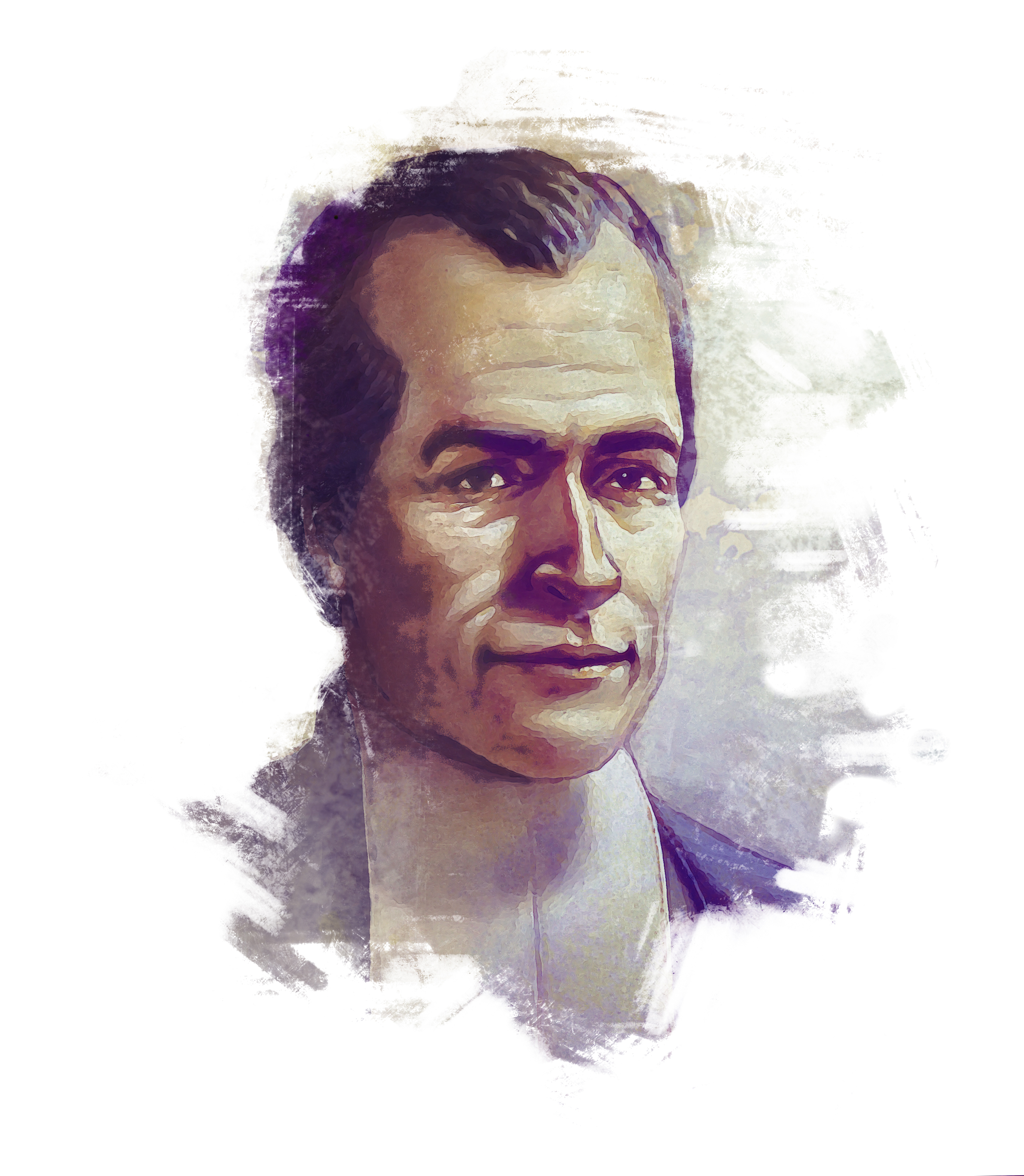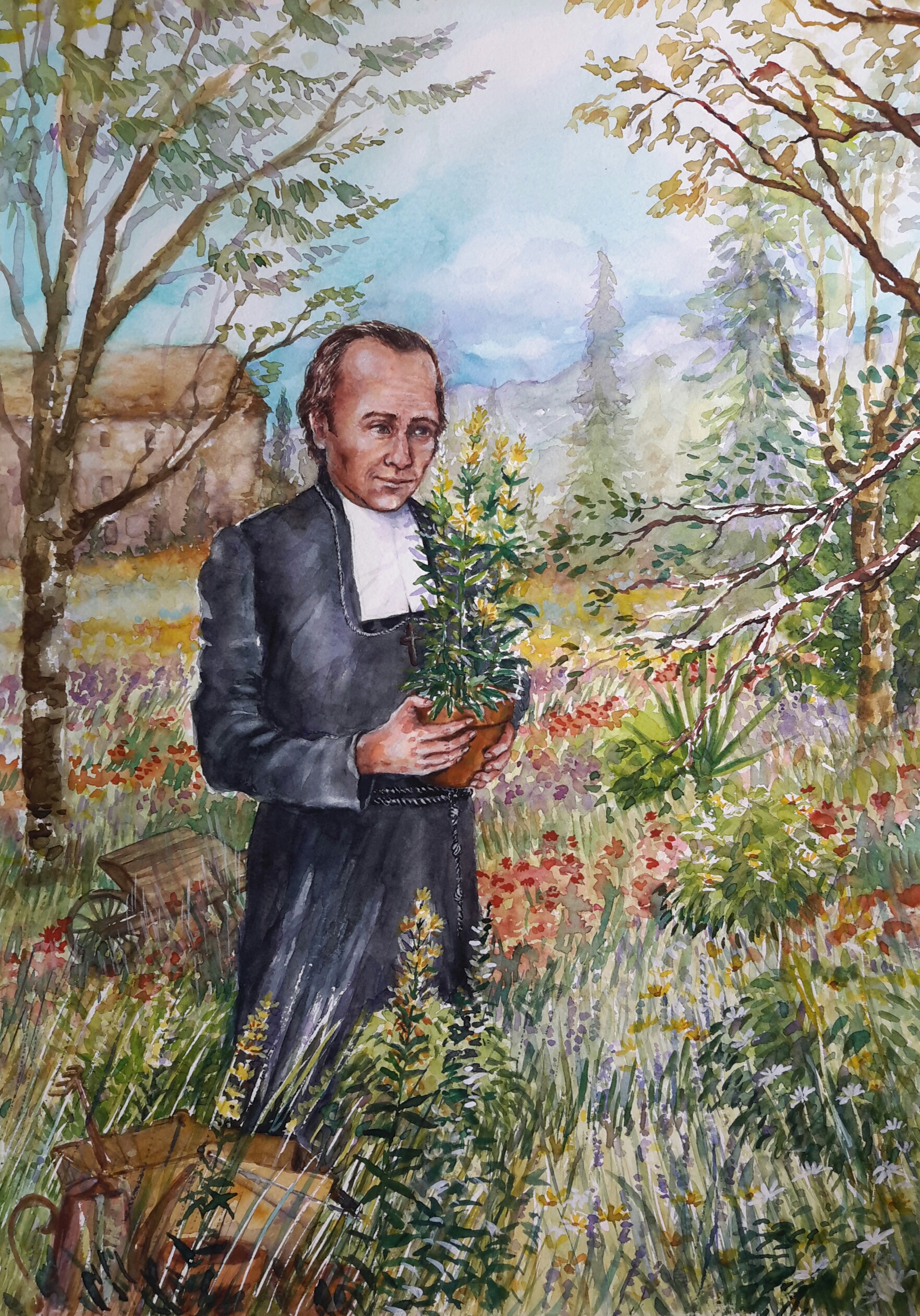Br. François (1808-1881)
First Superior of the Institute
Gabriel Rivat (Br. François) was born on 12 March 1808 in the hamlet of Maisonnettes near La Valla-en-Gier (France). He was the last-born of 7 children of Jean-Baptiste Rivat y Françoise Boiron.
In his family, saying the Rosary was a daily practice and, when Gabriel was five years old, his mother consecrated him to the Virgin Mary during a pilgrimage to the shrine of Valfleury.
Father Marcellin Champagnat arrived as curate in the parish of La Valla in 1816. Gabriel was 8 years old at the time and one of the first to attend the vicar’s morning catechism lessons. At the age of 10, he made his First Communion. Three weeks later, he asked to join the young community that Fr. Champagnat had just founded.
On Wednesday 8 September 1819, Gabriel Rivat put on the distinctive costume of the “Little Brothers of Mary”: black trousers, frock coat, collar and top hat. From this date on, Gabriel Rivat became Brother François.
As Br. François, he began teaching in La Valla at the age of 12. As he was too short to see all his pupils, he stood on a large stone and gave his lessons from there. He went on to teach at the schools in Marlhes and in Vanosc.
During the summer of 1824, he returned to La Valla to help in the construction of a large house, the Hermitage. Improvising as a mason’s assistant, he spent his time carrying stones and helping to mix the mortar. He was then sent to the village of Boulieu-les-Annonay, in charge of the senior class and therefore responsible for the school.
On Wednesday 11 October 1826, at the age of 18, Br. François took his perpetual vows of Poverty, Chastity and Obedience after Communion, in secret.
From then on, he became the Founder’s secretary and Director of the Novitiate classes.
In 1839, Marcellin’s strength began to wane. The Founder asked the Brothers to elect his successor. Br. François was elected.
On the death of Champagnat on 6 June 1840, François continued the work which he had begun.
As Superior, he faced and overcame various problems such as the lack of legal recognition and the lack of Church recognition, the identity of the congregation, union with or separation from the Marist Fathers, clarification of the Rules, and the expansion of the Institute outside France.
At the General Chapter of 1860, convened at the request of the Holy See to study the Constitutions, Br. François surprised everyone by presenting his resignation as Superior General. He gave poor health as his reason. The Chapter did not accept his resignation and appointed a vicar for him, Br. Louis-Marie.
In January 1863 the Institute was approved by His Holiness Pope Pius IX. The second session of the General Chapter was held in July 1863. As the decree of approbation had already been obtained, albeit provisional, there was no objection to accepting the resignation of Br. François as Superior General and proceeding to the election of his successor. Br. Louis-Marie was elected.
From 1860, after his resignation as Superior General, Br. François resided at the Hermitage as Superior of the community. He fostered an atmosphere of silence, which made it easier for all to live in the presence of God. He was also concerned to create a Marian ambiance. As Director of the Hermitage, he led a regular and quiet life, one could even say contemplative. He tended part of the garden, looked after the Brothers in the infirmary and devoted lengthy periods to prayer. He did not shirk work, and accepted to remain Superior of the house and of the student Brothers. He was asked to preside at all the community events, both prayers and meals, and he continued to teach religion classes.
Although he could be demanding, he was nevertheless close to the trainees, knew each of them by name and knew how to guide them with timely advice. It was they who began to call him affectionately “Grandpa”.
On Saturday 22 January 1881, Br. François did not attend the community visit to the Blessed Sacrament at noon. As he was not in the habit of missing prayers, the Brothers were concerned by his absence, went to his room, and found him unconscious. A few hours later he died.
At the death of Br. François, the Institute had been well founded with a solid structure. It was made up of approximately 2500 Brothers, teaching more than 80,000 pupils in 565 schools. The Institute was divided into 8 provinces: Saint-Genis, Hermitage, St. Paul, Aubenas, North, Bourbonnais, the British Isles and the West. The missions of Oceania as well. It also had a large number of candidates in formation: about 600 novices, about 130 postulants and about 190 juniors.



